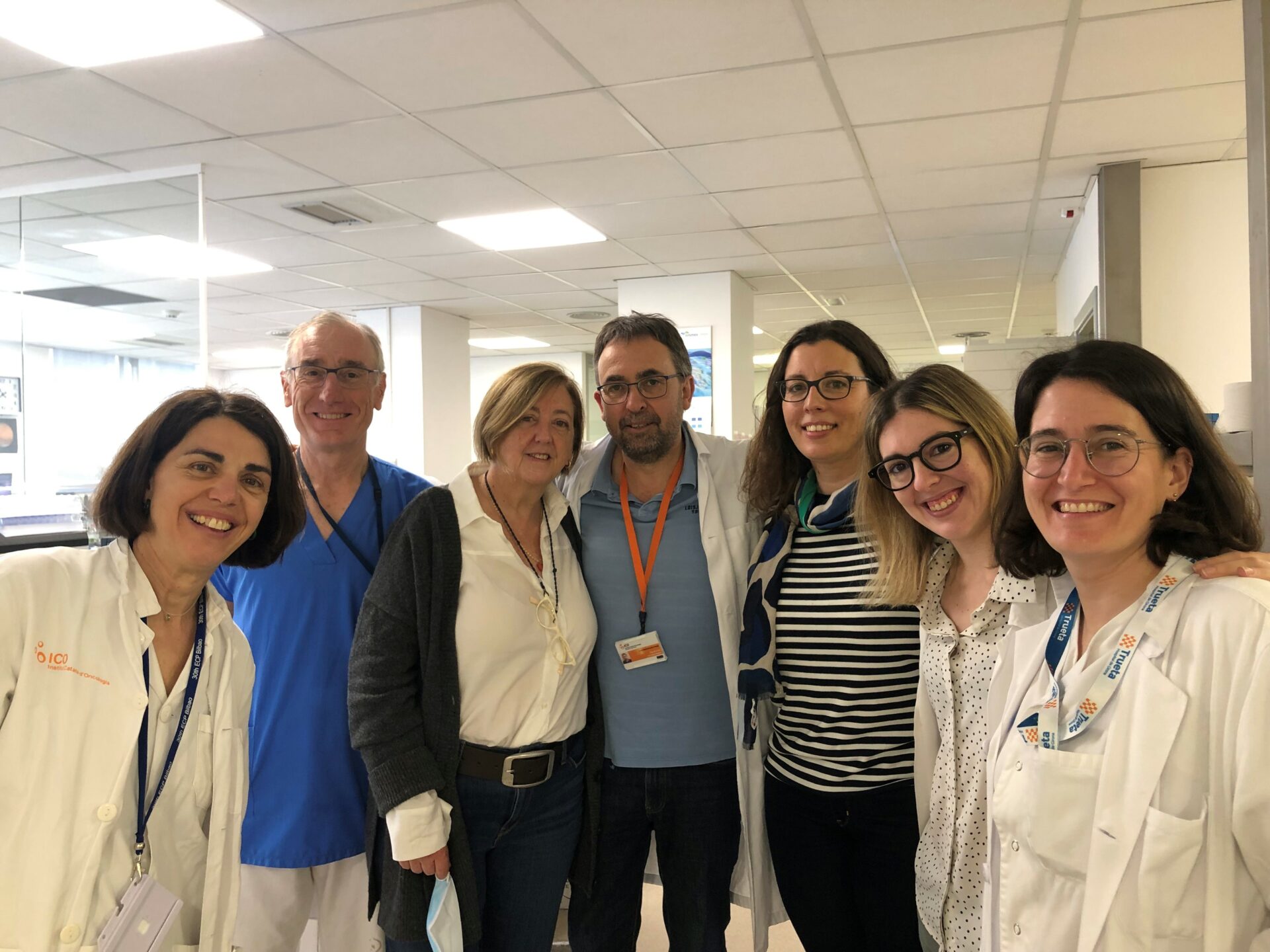
They develop a new highly sensitive method that combines massive sequencing of patients' genetic material and subsequent bioinformatics analysis that could detect changes in DNA that could predict the development of endometrial cancer.
The test has been applied to 93 women with Lynch Syndrome, a genetic predisposition to cancer.
It is a study in which the collaboration of oncologists, pathologists, geneticists, bioinformaticians, epidemiologists and gynecologists from IDIBELL, ICO, IDIBGI, the University Hospital of Bellvitge and the University Hospital Josep Trueta has been essential to transfer the results from the laboratory to the patients.
The young researchers Júlia Canet, Fátima Marín and Eduard Dorca are the first authors of this study.
They present a new method capable of detecting small changes in the DNA sequence -in the regions called microsatellites- that could predict the appearance of endometrial cancer in women affected by Lynch syndrome, a hereditary disease predisposing to cancer. This technique, which has been tested in a pilot study involving 93 women published in the journal Modern Patology, combines massive sequencing of genetic material and subsequent bioinformatic analysis and would be applied to endometrial aspirate samples.
It is estimated that Lynch syndrome affects approximately 1 in 300 people, who have an inherited DNA mutation that predisposes them to suffer mainly gastrointestinal and/or endometrial cancer. It is estimated that between 13% and 49% of women with Lynch syndrome, depending on the gene affected, will develop endometrial cancer during their lifetime. Women diagnosed with Lynch syndrome are offered the possibility of a total hysterectomy -removal of the uterus- from the age of 40, thus avoiding the possible development of cancer. However, not all women will eventually develop cancer, nor will they all do so after the age of 40.
This new method aims to implement a more individualized follow-up system for women with Lynch syndrome. Dr. Joan Brunet, principal investigator at the Bellvitge Biomedical Research Institute (IDIBELL) and the Girona Biomedical Research Institute (IDIBGI) and none of the Genetic Counseling Units of the Catalan Institute of Oncology (ICO) centers, states that "the ultimate goal is to prevent unnecessary hysterectomies, that is, to detect when cancer is about to develop in order to act in time and only when necessary".
This study has required the collaboration of geneticists, oncologists, bioinformaticians, epidemiologists, gynecologists and pathologists from IDIBELL, ICO, IDIBGI, the University Hospital of Bellvitge (HUB) and the University Hospital Josep Trueta. "To apply the advances made in the laboratory to improve the health and quality of life of patients requires the expertise of professionals from many disciplines, this study is a clear example of how to create synergies for the benefit of patients," says Dr. Xavier Matias Guiu, none of the IDIBELL gynecological cancer research group and Head of the Anatomic Pathology Service of the HUB.
DNA microsatellite instability to predict endometrial cancer
Patients with Lynch syndrome have mutations in genes that prevent the correct repair of DNA errors. This causes these errors to accumulate, especially in repetitive regions called microsatellites. This accumulation of errors is called microsatellite instability.
Dr. Marta Pineda, a researcher in the hereditary cancer research group at IDIBELL and ICO, emphasizes that the ultrasensitive computer analysis developed by her research group can detect small variations in the measurement of microsatellites in endometrial aspirate cells even before cancer develops.
Easily applicable to clinical practice
According to Dr. Jordi Ponce, IDIBELL researcher and head of the gynecology service at the HUB, this would be a technique easily applicable to routine clinical practice. On the one hand, massive DNA sequencing is already routinely performed for the diagnosis of other disorders, and the bioinformatics algorithm for the detection of microsatellite instability would be easily transferable.
The pilot test has demonstrated the potential of the new method in the 93 women with Lynch syndrome recruited within the Screenwide project, led by Dr. Laura Costas, researcher at IDIBELL and ICO.
The team of researchers is already initiating a nationwide multicenter study to validate the clinical utility of the test in a larger number of patients. In this study they also plan to perform the microsatellite instability analysis in minimally invasive tests such as cytology or vaginal autopsy, and thus avoid the discomfort associated with endometrial aspirate collection.
Solidarity initiatives, a pillar for carrying out the study
Solidarity contributions from the associations BufaLynch and Fundación Roses Contra el Cáncer have helped the study to move forward. The new study that is now underway will also receive support from the Women's Race of Castelló d'Empúries. The work has also received funding from the Ministry of Economy and Competitiveness, the Ministry of Science and Innovation, the Carlos III Health Institute, the European Regional Development Fund, CIBERESP, CIBERONC, SEOM Foundation and the Department of Business and Knowledge of the Generalitat of Catalonia.